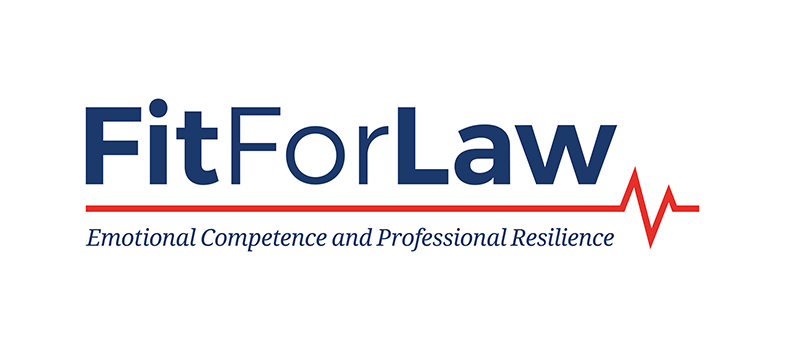4. Handling responsibility
This section includes:
- Explanatory text
- “Handling responsibility” checklist
- 1 video.
You should allow yourself 15 minutes to complete this section.

Legal practice can sometimes feel like a balancing act between giving your clients the best advice and assistance possible, but also ensuring you are avoiding putting you and/or your employer at any risk of liability if things go wrong. You may also be experiencing pressures relating to chargeable hours and billing targets. Sometimes balancing the conflict from these different roles, responsibilities and pressures can be challenging or stressful.
Additionally, the more responsibility you take on, the more worry this can cause and the more decisions you will have to take. It is important to be able to handle this process in an emotionally and psychologically healthy manner to help you find an appropriate balance and handle your responsibilities well.
“Sometimes because you’re so busy of course you can go around in circles in your behaviour because you don’t really have time to stop and think how you’re reacting to people or situations.”
Section 2 of these resources demonstrated the role of emotion in judgement and decision-making. It is important to acknowledge and utilise this when it comes to taking on and handling responsibility and balancing your obligations. This checklist can help you do this:
Handling responsibility checklist
Be self-aware
Discussion
Take the time to understand what emotions handling responsibility generates and how these impact on you. One useful way to do this is by practising mindful meditation, but there are many others. For example, you could draft your own personal self-help manual based on the strengths and weaknesses you identified when working through these resources
Be conscious of internal conflicts and tensions
Discussion
Identifying then ignoring internal conflicts means that they will continue generate negative emotional responses, including incidental emotions that distract you from the task at hand. There is also the danger that you are disregarding important signals telling you that there is an ethical or moral issue you need to address.
…But don’t let fear or a lack of confidence take over
Discussion
Remember the examples in Box 5 of Section 3.2. You should make sure you are not defining yourself by previous mistakes, or avoiding challenging yourself because it is out of your usual comfort zone.
Don’t internalise the expectations of others around you
Discussion
Sometimes individuals will openly state their expectations for you (for example “you should be aiming for promotion within a year”). At other times, you may feel there are implied expectations (for example, “I got this job because of my high level of chargeable hours, so I need to keep increasing them”) You can’t always assume that you are interpreting these expectations correctly, but even if you are, they don’t have to rule your decision-making process. It is important to remember they are other peoples’ perspectives, and that yours can be different.
…But let people help you bear the burden
Discussion
It is a good idea to chat through your thoughts and emotions with others, to get their input and perspective. This could be work colleagues or friends.
Think outside the box
Discussion
Don’t assume because something is the norm it has to be (or even should be) that way. For example, if you are offered a promotion, it’s easy to instantly agree because of the status and financial rewards involved, but if you are agreeing for those reasons, there’s some evidence it is unlikely to make you happy or fulfilled. This is known as “extrinsic” as opposed to “intrinsic” motivation (Deci and Ryan, 2000).
In practical terms, a key part of handling responsibility can be ensuring that you are organising and managing your time appropriately and maintaining an effective work-life balance This video gives some practical tips from legal professionals on getting the balance right.
Organisation and balance

Transcript
3.2 Dealing with mistakes
